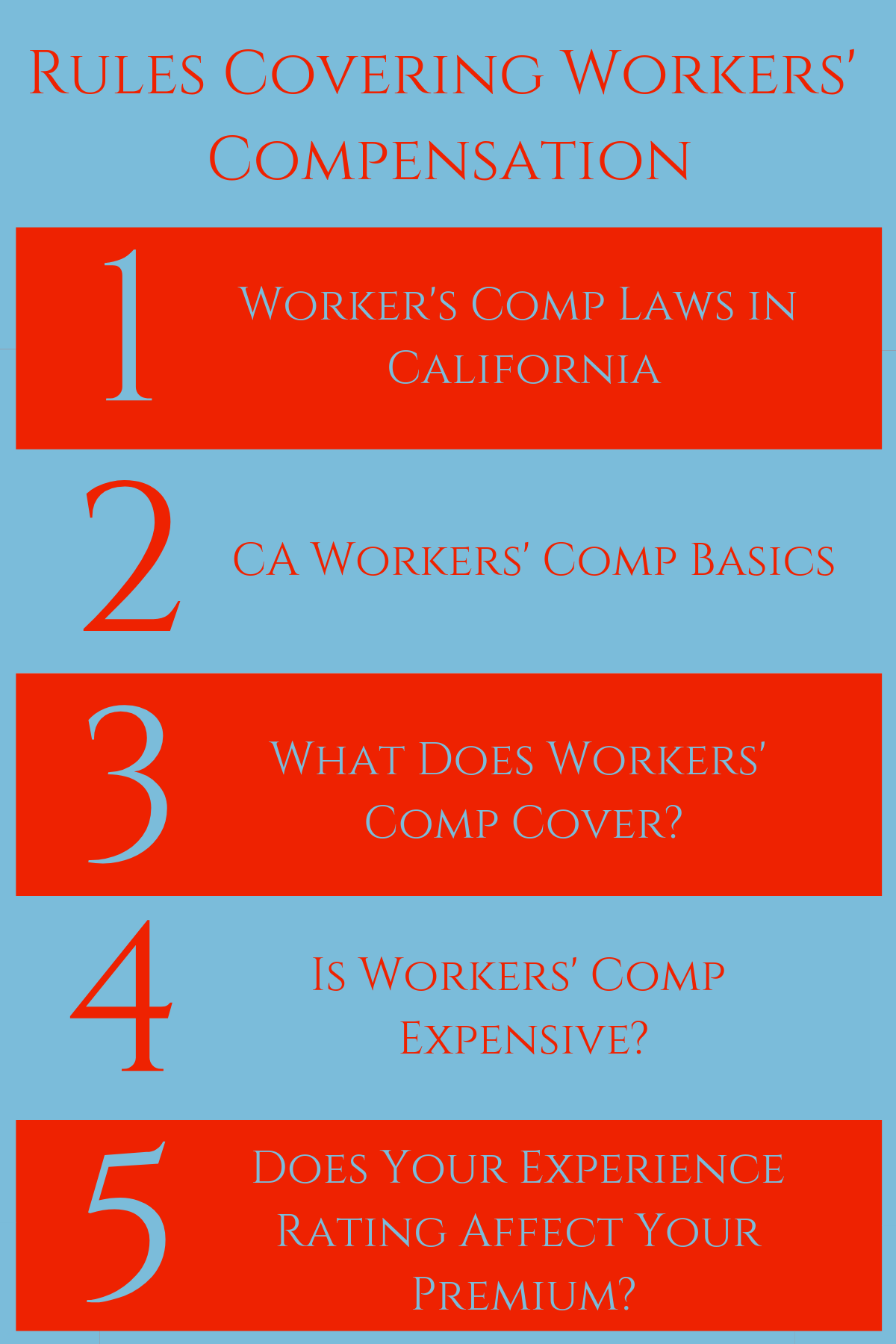11 Dec The Rules Covering Workers’ Compensation Every Californian Employer Should Know

855-368-5502
The Rules Covering Workers' Compensation Every Californian Employer Should Know
By: Adam M. Matheny
A worker is moving freight around the warehouse when an improperly loaded set of shelves comes down on top of his forklift causing serious injuries. After a thorough investigation, the inspectors determined who was at fault and that the safety cage on the forklift had probably saved the worker’s life.
An accident like this emphasizes the need for workers’ compensation programs that step in when a worker is injured on the job to help them recover more quickly and return them to work. Workers comp insurance is also there to ensure the employer does not endure the cost of medical bills and wages.
Worker's Comp Laws in California
According to the workers’ compensation laws in California, all employers must provide their employees with “no-fault” insurance that protects them in case of workplace injury or illness. At the same time, the laws state that an employee may not sue if they become ill or injured on the job. The law also states the employer cannot make the employee pay for the cost of workers’ comp in any way and that if you don’t have workers’ compensation insurance, it is a crime. The entire program is overseen by the California Division of Worker’s Compensation, note that it is also a crime to fire someone for filing a claim.

CA Workers' Comp Basics
In California, all employers who have one or more part or full-time employees are required to purchase workers’ compensation insurance. Here are some of the details you should know including certain exemptions:
- Sole properties are not required to have workers comp but can opt to have coverage.
- When partners elect to have coverage, one partner cannot claim the exemption.
- Directors and executive officers in a company they do not fully own must be included in coverage.
- If the directors and officers own the company, they can opt out.
- When it comes to an LLC, all working members are covered, but non-working members are excluded unless they choose otherwise.
What Does Workers' Comp Cover?
In California, workers’ comp provides employees with several benefits if they become ill or injured on the job. Among these are:
- Paying medical and therapy bills
- Providing temporary disability income
- Providing supplemental job displacement benefits
- Providing death benefits
In California, you can purchase workers’ comp insurance through any broker or agent who is licensed to write these policies in the state of California.
You can also purchase workers’ comp insurance directly from the State Compensation Insurance Fund established in 1914. Not only does the SCIF offer competition to the private insurance companies and is there for those companies who cannot otherwise obtain coverage.
Is Workers' Comp Expensive?
Every occupation in the state of California is assessed for its risk level and assigned a “risk code” that is used for workers’ comp purposes. For example, a landscape worker has a much higher risk number (0042 $7.71 rate per $100) than a clerical worker (8810 $0.40 rate per $100). The classification code for each employee is used to determine the annual cost of workers’ comp insurance for that person. It is not unusual for an employer to have employees under several codes working for them.
Does Your Experience Rating Affect Your Premium?
Those employers who meet specific requirements with regard to their annual premium may be eligible for an experience rating adjustment up or down. The long and short of this is each time your account is reviewed for an experience rating, the number of workers’ compensation claims you have filed during the assessed time period is compared to the average in your industry. Also compared are your losses to the norm. If you are below average, your rates may go down, but if you are above the average, they could just as quickly go up.
This is a very simplistic overview of California’s very complex workers’ compensation laws and rules. To get the full details, you should contact your insurance agent who can break it all down and help you to make an informed decision with regard to providing your employees with the right workers’ compensation insurance coverage.

